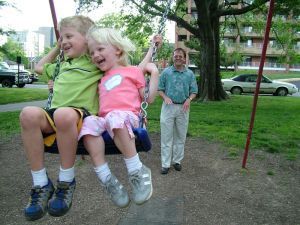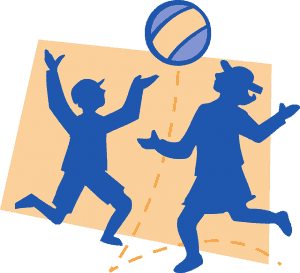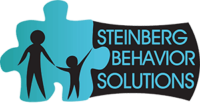 Does your special needs child have difficulty making and playing with friends? Are you looking for ways to encourage social interactions between your special needs child and other children? Have you often asked yourself whether other children would want to play with your child? Or whether your child will play appropriately and be liked? Organizing a play date for your child may help to encourage social skills in a natural setting where you can model and prompt developmental social skills in a familiar setting.
Does your special needs child have difficulty making and playing with friends? Are you looking for ways to encourage social interactions between your special needs child and other children? Have you often asked yourself whether other children would want to play with your child? Or whether your child will play appropriately and be liked? Organizing a play date for your child may help to encourage social skills in a natural setting where you can model and prompt developmental social skills in a familiar setting.
Finding the right playmate for your child is very important. Ask your child’s teacher if your child has a special friend in the classroom, ask a familiar neighbor, close in age, or involve siblings.
Depending on the social skills being targeted, you may need to plan a structured activity. In other cases, providing options of multiple toys allows for spontaneous imaginary plan and appropriate turn taking. For structured activities, it may be beneficial to make visuals so your child knows the activities in the order that they will occur. For board games, and games that require turn taking, making picture cards of each child’s face may be helpful to alert your child of whose turn is next. If your child has difficulty learning new games, you may want to play these activities with your child prior to the play date so that you can model how to play, and familiarize him with the game pieces and materials.
Here are social skills to identify, model, and prompt for your child:
(0-18 months of age)
- Spontaneously makes eye contact with other children
- Spontaneously follows peers or imitates their motor behavior two times (e.g. follows a peer into a playhouse)
(18-30 months of age)
- Initiates a physical interaction with a peer two times (e.g. a push in a wagon)
- Spontaneously requests items from peers
- Engages in sustained social play with peers for three minutes withouyt adult prompts or reinforcement (e.g. cooperatively setting up a play set)
- Spontaneously responds to the requests from peers
- Spontaneously requests peers to participate in games or social play.
(30-48 months of age)
- Spontaneously cooperates with a peer to accomplish a specific outcome (e.g. one child holds a bucket while the other pours in water)
- Spontaneously asks questions to peers using WH questions
- Responds to five different questions or statements from peers
- Engages in pretend social play activities with peers for five minutes
- Engages in four verbal exchanges on one topic with peers for five topics
 By focusing on specific skills in a natural environment play date, your child will learn these developmental social skills where they happen. This natural environment teaching with a play date will help your child generalize these social skills across other natural environment social settings.
By focusing on specific skills in a natural environment play date, your child will learn these developmental social skills where they happen. This natural environment teaching with a play date will help your child generalize these social skills across other natural environment social settings.
Have fun playing!
Check out our other blog posts to learn more about social skills:
